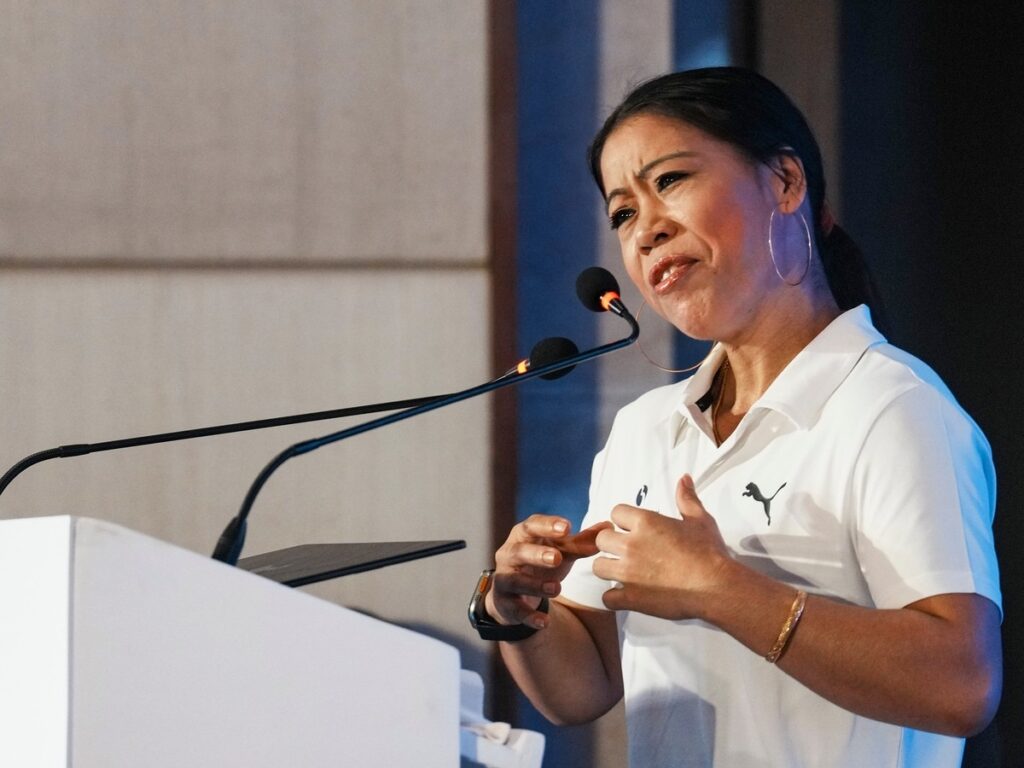As the Paris Olympics approach, the spotlight on Indian wrestler Vinesh Phogat’s weight category has sparked significant controversy, raising questions about athlete selection and fair play in the competitive landscape. With the unfolding events, six-time world champion Mary Kom has now shared her views, shedding light on the intricacies of weight management and the implications it carries for athletes. This article delves into the details surrounding the controversy and the perspectives offered by Mary Kom.
Understanding the Controversy
The controversy began when Vinesh Phogat’s weight category was scrutinized due to varying interpretations of qualification standards and pre-competition weight allowances. As an athlete aiming for Olympic glory, these parameters often dictate an athlete’s preparation and competitive edge.
What Triggered the Concern?
The issue primarily revolves around whether certain athletes are being given an unfair advantage through weight classifications that don’t reflect their true competitive fighting weights. The wrestling community raised flags about transparency in the selection process and whether athletes were being correctly classified based on their performances and physical conditions.
Mary Kom’s Perspective
Mary Kom, an icon in Indian sports, has lent her voice to this discussion, emphasizing the importance of fair play and transparent criteria when it comes to athlete selection for high-stakes competitions like the Olympics. She stresses that the health and well-being of athletes should be prioritized over mere medal aspirations.
Key Insights from Mary Kom
- Fair Competition: Mary Kom asserts that every athlete should be competing in their respective weight categories, based on their physical capabilities and training.
- Health Concerns: The weight struggle can often lead to serious health issues, and athletes must be protected from harmful practices that prioritize short-term competition over long-term health.
- Supportive Infrastructure: She calls for better support systems within the sports framework to help athletes manage their weight without compromising their physical health.
The Importance of Weight Management in Combat Sports
Weight management is a crucial aspect of combat sports, impacting not only the selection process for tournaments but also the performance level of the athletes. Effective weight management strategies can enhance performance when executed correctly.
| Weight Management Strategy | Description | Impact on Performance |
|---|---|---|
| Hydration Strategies | Maintaining proper fluid balance before and after weighing in. | Improves endurance and recovery. |
| Dietary Guidelines | Adapting a balanced diet that supports muscle retention while cutting weight. | Enhances strength and overall performance. |
| Training Cycles | Implementing different training regimens leading up to competitions. | Optimizes fitness levels and weight control. |
Conclusion
The controversies surrounding Vinesh Phogat’s weight category highlight the ongoing challenges within competitive sports. Mary Kom’s input serves as a reminder of the importance of prioritizing athlete health and fair competition standards. As preparations for the Paris Olympics continue, it is crucial for governing bodies to establish clear guidelines that uphold the integrity of the sport and the welfare of its athletes. Thoughtful consideration of these issues will not only impact current athletes but also set a precedent for future generations in every sport.
